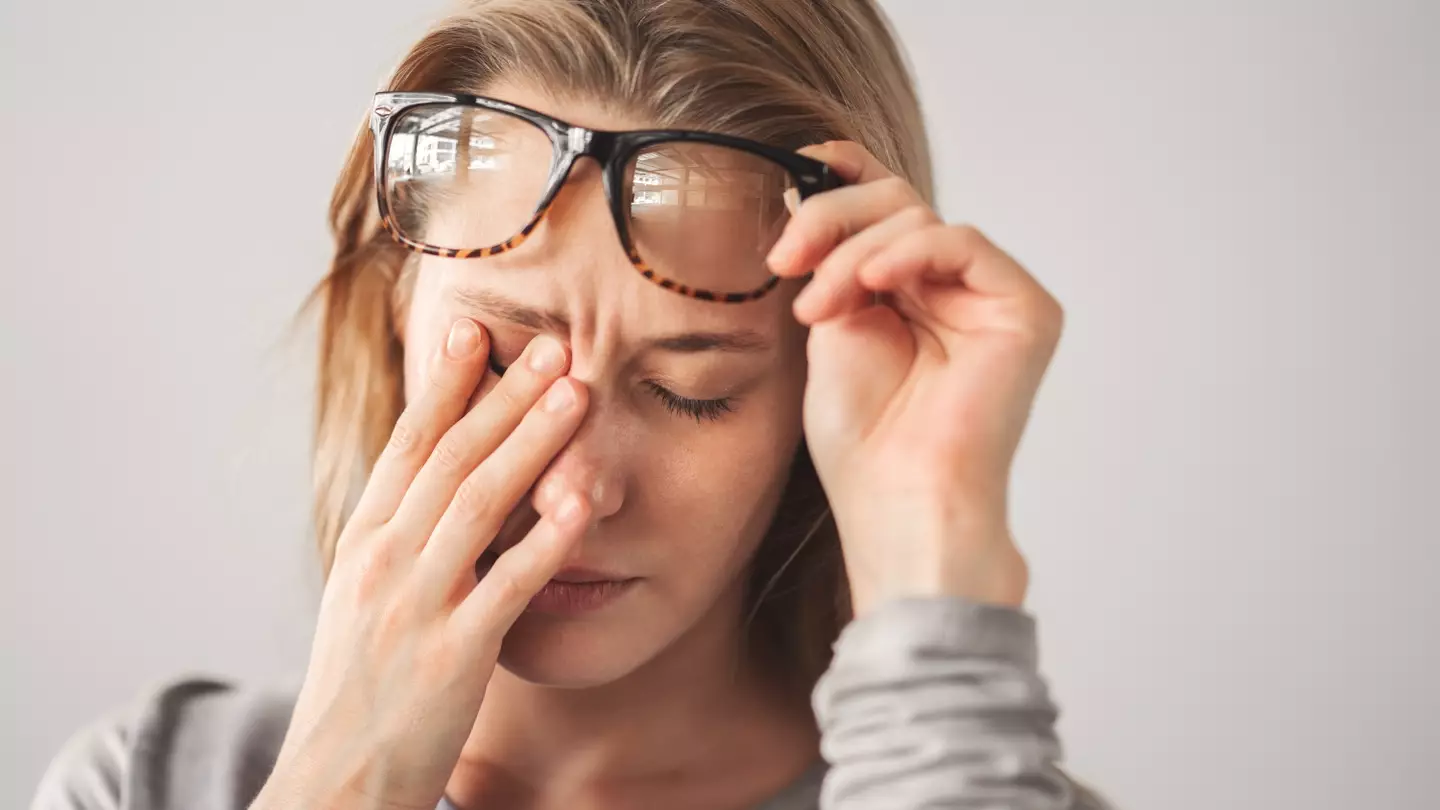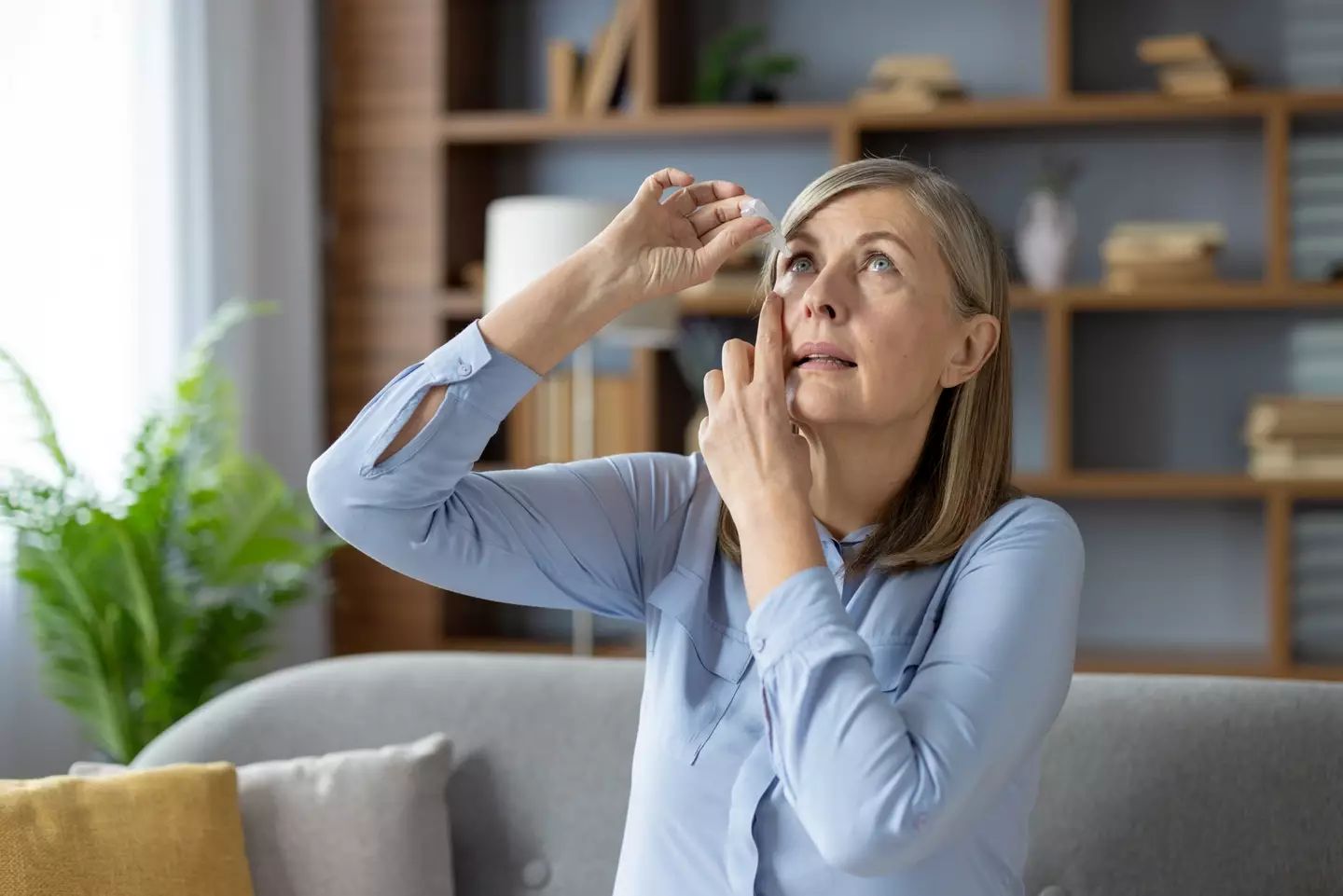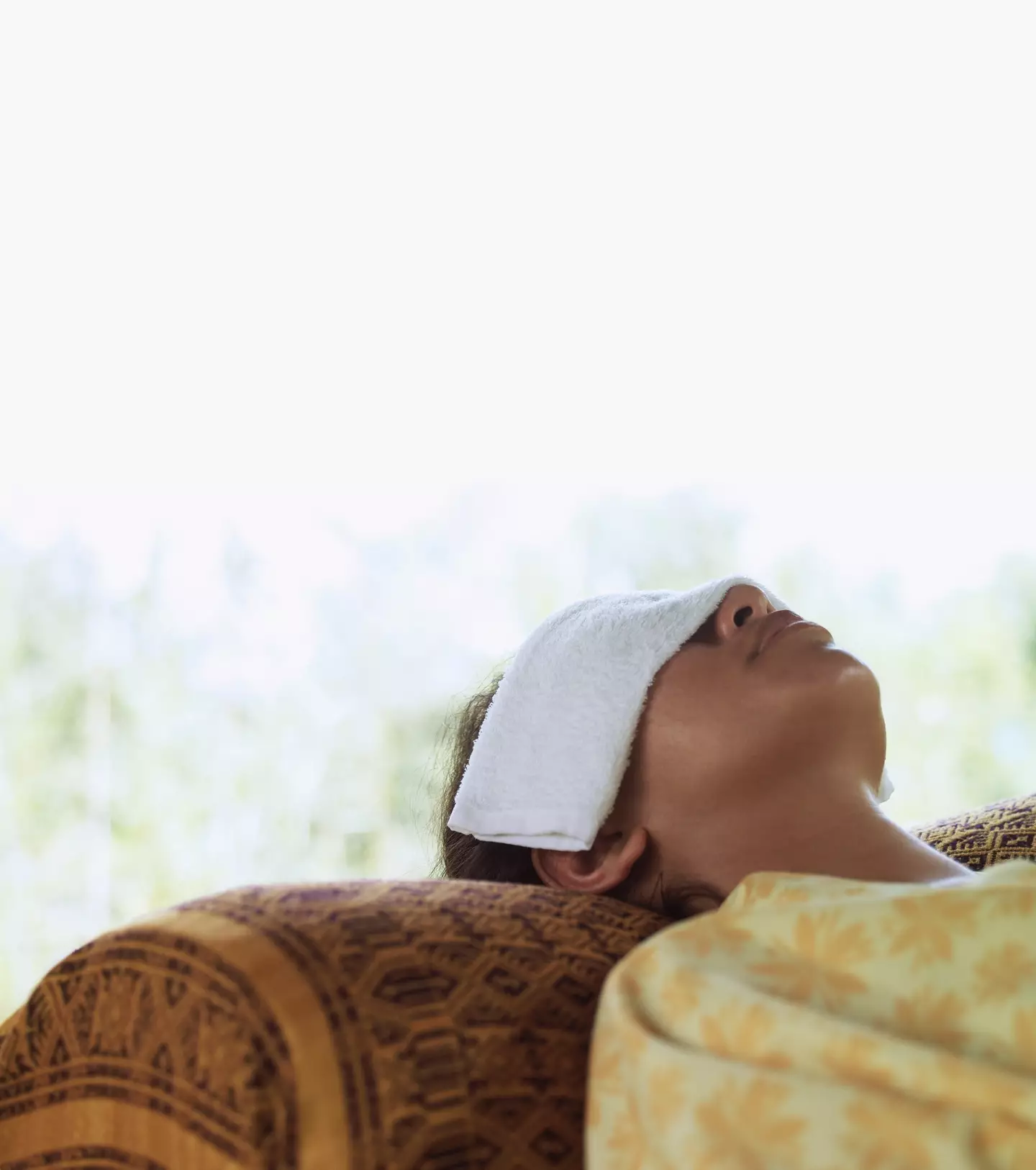
The symptoms of menopause are notoriously far-ranging - from hot flushes to an unexpected lack of libido, and all things in-between.
While there are several side effects that the majority of women going through this frustrating phase are forced to endure, there are others that doctors consider rather niche.
This doesn't mean they're any less infuriating, however, including the likes of 'frozen shoulders', tinnitus (an ongoing ringing within the ears), or the feeling that your mouth might be burning.
Another lesser-known side effect to the menopause is understood to affect a person's eyesight.
Advert
That's right - according to a number of ophthalmologists, when a woman's menstrual cycle slowly comes to an end, changes can occur within the eye, possibly causing both distortion and pain.

Addressing this enigma, consultant ophthalmic surgeon Marcela Espinosa-Lagana of the Centre for Sight emphasised to Huff Post recently: "Many women don’t realise that menopause can impact their eyesight.
"We want to encourage women to seek help, get regular eye checks, and explore treatment options rather than suffer in silence."
Specifically, both menopause and perimenopause - the transitional phase before full-fledged menopause kicks in, also marked by hormonal fluctuations and tricky symptoms - have been known to contribute to the feel of extreme dry eyes.
It was originally believed by researchers that dryness in this area could have been associated with lower oestrogen levels, caused by the irregularity of ovulation.
Apparently, however, scientists are now convinced that the guiltiest culprit could be androgens - more specifically, testosterone. This is because this hormone has been known to affect the meibomian glands.
These produce an oily layer when you blink, which is crucial to nourishing your eyes.

On top of dryness, hordes of other menopause sufferers have complained of a 'burning' or gritty feeing within the eye, as well as blurriness, and an increased sensitivity to light.
"Eye symptoms such as dryness, irritation or visual changes should not be ignored," Dr Espinosa-Lagana went on to reiterate.
Asked how best to combat these discomforts, she recommends using a warm compress.
To do this, she advises soaking a flannel in warm-ish water, and gentle applying it to the eyes to help the oil-producing glands to lubricate the surrounding zone.
Alternatively, Dr Espinosa-Lagana also suggested using eyedrops to relieve dryness, which can often be purchased over the counter. She added that non-preserved drops may be gentler in cases of severe irritation.
Topics: Menopause, Periods, True Life, Women's Health, Health